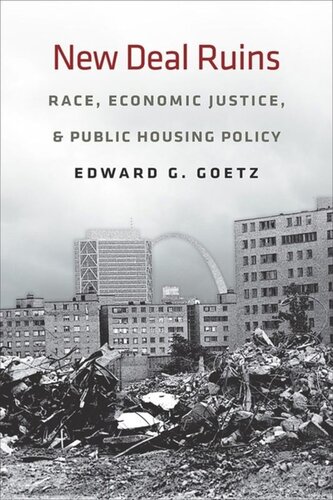

Most ebook files are in PDF format, so you can easily read them using various software such as Foxit Reader or directly on the Google Chrome browser.
Some ebook files are released by publishers in other formats such as .awz, .mobi, .epub, .fb2, etc. You may need to install specific software to read these formats on mobile/PC, such as Calibre.
Please read the tutorial at this link: https://ebookbell.com/faq
We offer FREE conversion to the popular formats you request; however, this may take some time. Therefore, right after payment, please email us, and we will try to provide the service as quickly as possible.
For some exceptional file formats or broken links (if any), please refrain from opening any disputes. Instead, email us first, and we will try to assist within a maximum of 6 hours.
EbookBell Team

5.0
50 reviewsPublic housing was an integral part of the New Deal, as the federal government funded public works to generate economic activity and offer material support to families made destitute by the Great Depression, and it remained a major element of urban policy in subsequent decades. As chronicled in New Deal Ruins, however, housing policy since the 1990s has turned to the demolition of public housing in favor of subsidized units in mixed-income communities and the use of tenant-based vouchers rather than direct housing subsidies. While these policies, articulated in the HOPE VI program begun in 1992, aimed to improve the social and economic conditions of urban residents, the results have been quite different. As Edward G. Goetz shows, hundreds of thousands of people have been displaced and there has been a loss of more than 250,000 permanently affordable residential units. Goetz offers a critical analysis of the nationwide effort to dismantle public housing by focusing on the impact of policy changes in three cities: Atlanta, Chicago, and New Orleans.Goetz shows how this transformation is related to pressures of gentrification and the enduring influence of race in American cities. African Americans have been disproportionately affected by this policy shift; it is the cities in which public housing is most closely identified with minorities that have been the most aggressive in removing units. Goetz convincingly refutes myths about the supposed failure of public housing. He offers an evidence-based argument for renewed investment in public housing to accompany housing choice initiatives as a model for innovative and equitable housing policy.